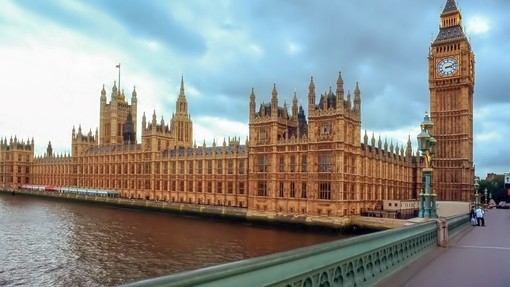
What do British businesses want from the next government?
Now Labour has won the 2024 election by a landslide, businesses across Britain are voicing their hopes for their new government. At Morson, we understand the critical issues facing various industries and have identified key areas where government intervention could significantly benefit the economy.

Improving the Apprenticeship Levy
One of the most pressing issues for businesses across the UK is the need for improvements to the apprenticeship levy. Introduced in 2017, the levy was designed to incentivise employers to recruit more apprentices, invest in training programmes and support workforce development. However, according to the Institute of Student Employers (ISE), the current regulations restrict employers’ ability to hire apprentices.
There is a need to fill skills gaps across the economy yet the number of 16-24-year-olds who are not in work or apprenticeships has risen since the Covid-19 pandemic. Dr Andrea Barry, an economist at Youth Futures Foundation, said “Immediate action is needed to ensure young people across the country aren’t pushed further away from the labour market.”
The new Prime Minister Sir Kier Starmer has said “changes to apprenticeship funding system would reverse a decline in people enrolling on manufacturing training schemes”. The new government want to increase the skills of the British workforce and increase apprenticeships. Labour pledge to change the way the levy is spent and plan for a new “growth and skills levy”.
Businesses want to develop short, targeted training programmes to meet future needs to allow businesses to be more strategic in the development of their employees. Most apprenticeships are set as a top-down approach and aren’t flexible enough to meet the needs of today.
Tackling Skills Shortages
Skills shortage refers to insufficient workers with specific skills or qualifications in a particular industry or region. Skills shortages are a critical issue affecting numerous industries, from construction and infrastructure to IT and digital. These shortages cause businesses to have difficulties in finding and recruiting people with the required expertise for the role.
The role of government is crucial in tackling the skills crisis as ‘business needs an industrial strategy that is fit for purpose’. A few driving factors behind skills shortages are fewer people being able to work, an ageing workforce in certain sectors and newer technologies need more than just basic digital skills.
British businesses are urging the new government to switch state support from corporation tax relief to a payroll tax credit at the National Skilling Wage. Some British Businesses are calling for the current corporation tax to be scrapped. In its place, a new flat-rate payment of the National Skilling Wage to all employers for every hour a worker spends on an approved training course. This would increase the level of state support for upskilling and increase the incentive for businesses to upskill their lower-paid workers.
Changes to workers rights
The new Labour government plan to ban exploitative zero hour contracts. They will end ‘one-sided’ flexibility and ensure all jobs provide a baseline level of security. This will affect the gig economy where independent contractors and freelancers perform short- term tasks or work temporary jobs. Ending zero hours contracts is controversial with Labour’s proposals coming under the spotlight in February 2024 when union leaders warned Keir Starmer not to dilute his plans in this area.
Labour also plans to ban ‘fire and rehire’ as this leaves working people at the mercy of bullying threats. Ending ‘fire and rehire’ means workers will feel safe in the knowledge that what they agreed to in their contract can’t be ripped up under threat of dismissal. Under the new Labour government, workers will be able to plan and save for the future with the knowledge that their job is safe and secure.
Construction and Infrastructure to IT and Digital
We also looked at what businesses in some of our specialist sectors, from construction and infrastructure to IT and digital, have said about their hopes and priorities from the next government.
In the construction and Infrastructure industry, many are calling for a change from the government. Richard Beresford, the chief executive of the National Federation of Builders (NFB) said that ” these coming weeks are a chance to hammer home to all parties how construction has been let down”. The next government must ensure that the construction and Infrastructure industry is fit for the future. To achieve this, the next government must commit to continued investment in upgrading the UK’s infrastructure and provide a long-term vision for the future.
As Morson works closely with the rail industry, we believe that HS2 would be beneficial for British businesses as construction will require roughly 30,000 people to design and build the railway, creating thousands of opportunities for small and medium-sized businesses through main contractors.
The UK has established itself as a leading tech economy, with a strong digital sector. The tech sector is one of the UK’s modern economic success stories, however, there are areas where the next British government could help. In a 2021 Gartner survey of business school students, more than 30% said they did not have the digital skills necessary to move into the job market.
Many businesses believe that more needs to be done to increase the number of people entering the growing IT and Digital sector. Businesses are calling for a long-term vision from the government.
The future of aerospace & defence
The new Labour government believes that the first duty is to keep the nation safe and protect its citizens. Under Sir Kier Starmer, Labour plan to spend 2.5% of GDP on defence and maintain our nuclear deterrent.
As the UK’s number one aerospace & defence recruiter, Morson pride ourselves on our involvement with some of the world’s most distinguished aerospace & defence organisations. As part of Labour’s defence strategy, we would see the construction of four new nuclear submarines, creating new apprenticeships and jobs, with the supply chain benefits being felt right across the country.
Future Government
The new government will face numerous challenges, but they must understand and address the needs of all British businesses. By reforming the apprenticeship levy, tackling skills shortages and supporting innovation and growth across all sectors, the government can create a thriving business environment that benefits the entire economy.
At Morson, we remain committed to advocating for these changes and supporting our clients through these critical times. Businesses across Britain are hopeful that the new Labour government will take decisive action to ensure the UK remains a competitive and prosperous place to do business.















